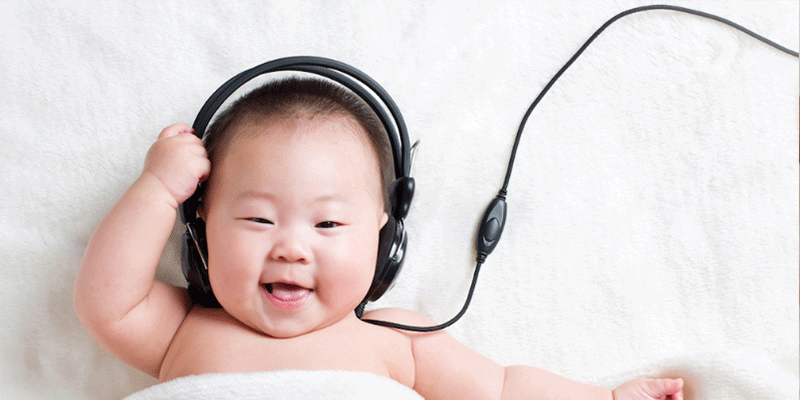
Just as your baby naturally prefers the human face over any other visual pattern, he also prefers the human voice to other sounds. His mother’s voice is his absolute favorite, because he associates it with warmth, food, and comfort. Babies like the high-pitched voices of women in general—a fact that most adults seem to understand intuitively and respond to accordingly, without even realizing it.
Just listen to yourself the next time you talk to your baby. You’ll probably notice that you raise the pitch of your voice, slow your rate of speech, exaggerate certain syllables, and widen your eyes and mouth more than normal. This dramatic approach is guaranteed to capture almost any baby’s attention—and usually make him smile.
By listening to you and others talk to him, your baby will discover the importance of speech long before he understands or repeats any specific words himself. By one month, he’ll be able to identify you by voice, even if you’re in another room, and as you talk to him, he’ll be reassured, comforted, and entertained. When he smiles and gurgles back at you, he’ll see the delight on your face and realize that talk is a two-way process. These first conversations will teach him many of the subtle rules of communication, such as turn-taking, vocal tone, imitation and pacing, and speed of verbal interaction.
At about two months, you may begin to hear your infant cooing and repeating some vowel sounds (ah-ah-ah, ooh-ooh-ooh). Go ahead and imitate his cooing, while also adding simple words and phrases to your “conversations” over the first four to six months. Along the way, it’s easy to fall into a habit of baby talk, but you should try to mix your conversations with adult language and eventually phase out the baby talk. During early infancy, you also should read to your baby, even though you may not think he comprehends what you’re reading.
By four months, your infant will babble routinely, often amusing himself for long periods by producing strange new sounds (muh-muh, bah-bah). He’ll also be more sensitive to your tone of voice and the emphasis you put on certain words or phrases. As you move through each day together, he’ll learn from your voice when you’re going to feed him, change his diapers, go out for a walk, or put him down to sleep. The way you talk will tell him a great deal about your mood and personality, and the way he responds will tell you a lot about him. If you speak in an upbeat or comforting way, he may smile or coo. Yell or talk angrily, and he’ll probably startle or cry.
Last Updated 8/1/2009
Source Caring for Your Baby and Young Child: Birth to Age 5 (Copyright © 2009 American Academy of Pediatrics)
The information contained on this Web site should not be used as a substitute for the medical care and advice of your pediatrician. There may be variations in treatment that your pediatrician may recommend based on individual facts and circumstances.






